Sunflower seeds have gained immense popularity in recent years due to their nutritional value and versatility. They are commonly consumed as a healthy snack and are also used in various culinary applications, including baking, cooking, and as a topping for salads. Canada, known for its fertile agricultural lands and favorable climatic conditions, has emerged as a significant producer and exporter of sunflower seeds. This article provides a comprehensive summary of the sunflower seeds industry in Canada, focusing on its production, market trends, and export potential. Production of Sunflower Seeds in Canada: Canada boasts substantial sunflower seeds production, primarily concentrated in the Prairie provinces of Manitoba, Saskatchewan, and Alberta. The unique climatic conditions, fertile soil, and advanced farming techniques contribute to the high-quality growth of sunflower seeds crops. The majority of sunflower seeds produced in Canada are of the confectionary variety, which is commonly consumed as a snack. The confectionary sunflower seeds are characterized by their large size, uniformity, and thin hulls, making them ideal for human consumption. Market Demand and Trends: The demand for sunflower seeds in Canada and globally has experienced significant growth in recent years due to increasing consumer awareness regarding healthy snacking options. Sunflower seeds are a rich source of healthy fats, proteins, vitamins, and minerals, making them a preferred choice for health-conscious individuals. Additionally, sunflower seeds offer versatility in cooking and baking, as they can be incorporated into a wide range of recipes. The market trends for sunflower seeds in Canada indicate a growing preference for bulk purchases. Health food stores, grocery stores, and online platforms offer bulk options for consumers, providing them with convenient and cost-effective ways to purchase sunflower seeds. Buying sunflower seeds in bulk allows consumers to enjoy economies of scale, ensuring a steady supply of these nutritious seeds at competitive prices. Export Potential: Canada is recognized as a major player in the global sunflower seeds export market. The country’s reputation for producing high-quality sunflower seeds has contributed to its export success.

nut
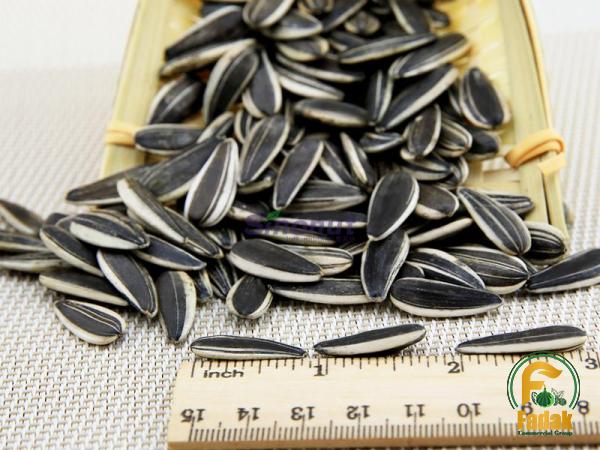 The global demand for sunflower seeds continues to grow, driven by the increasing prevalence of healthy snacking habits worldwide. Canada aims to capitalize on this demand by expanding its export capacity. Key markets for Canadian sunflower seeds exports include the United States, European Union, and Asia. The United States represents the largest market for Canadian sunflower seeds, primarily due to its proximity and strong trading relations, followed by the European Union. Additionally, emerging markets in Asia, such as China and India, offer considerable potential for Canadian sunflower seeds exports, driven by a rising demand for healthy snacks and an increasing population. Challenges and Opportunities: While the sunflower seeds industry in Canada presents numerous opportunities, it also faces specific challenges. One of the significant challenges is the competition from other countries, such as the United States and Russia, which are also major players in the global sunflower seeds market. To maintain its competitive edge, Canada must continuously strive to improve its production methods, ensure consistent quality, and explore innovative packaging and processing techniques. Another challenge faced by the industry is climate change and its potential impact on sunflower seeds crops. As temperatures and weather patterns continue to fluctuate, it is essential for Canadian farmers to adopt sustainable farming practices and explore resilient seed varieties to mitigate any adverse effects on the crop yield. Despite these challenges, the sunflower seeds industry in Canada presents several opportunities. Expanding into emerging markets, investing in research and development of new seed varieties, and diversifying product offerings are some of the strategies that can fuel industry growth. Furthermore, the increasing demand for organic and non-GMO sunflower seeds provides an excellent opportunity for Canadian farmers to cater to the growing demand for healthier food alternatives. Conclusion: The sunflower seeds industry in Canada is flourishing, driven by increasing consumer demand for healthy snacks and versatile cooking ingredients. Canada’s favorable agricultural conditions, expertise in farming practices, and reputation for producing high-quality sunflower seeds have positioned it as a significant player in the global market. By leveraging its strengths, Canadian farmers and exporters can continue to capitalize on the growing demand for sunflower seeds, both domestically and internationally. Sunflower Seeds Production and Processing Methods Sunflower seeds are primarily grown as an oilseed crop in Canada. The production cycle begins with planting sunflower seeds in the spring, followed by a period of germination and growth. Once the sunflower heads mature, they are harvested and dried to reduce moisture content. The dried heads are then threshed to remove the seeds from the flower head. After the seeds are separated, they undergo a cleaning process to remove any debris or impurities. This cleaning process ensures that the sunflower seeds meet the desired quality standards.
The global demand for sunflower seeds continues to grow, driven by the increasing prevalence of healthy snacking habits worldwide. Canada aims to capitalize on this demand by expanding its export capacity. Key markets for Canadian sunflower seeds exports include the United States, European Union, and Asia. The United States represents the largest market for Canadian sunflower seeds, primarily due to its proximity and strong trading relations, followed by the European Union. Additionally, emerging markets in Asia, such as China and India, offer considerable potential for Canadian sunflower seeds exports, driven by a rising demand for healthy snacks and an increasing population. Challenges and Opportunities: While the sunflower seeds industry in Canada presents numerous opportunities, it also faces specific challenges. One of the significant challenges is the competition from other countries, such as the United States and Russia, which are also major players in the global sunflower seeds market. To maintain its competitive edge, Canada must continuously strive to improve its production methods, ensure consistent quality, and explore innovative packaging and processing techniques. Another challenge faced by the industry is climate change and its potential impact on sunflower seeds crops. As temperatures and weather patterns continue to fluctuate, it is essential for Canadian farmers to adopt sustainable farming practices and explore resilient seed varieties to mitigate any adverse effects on the crop yield. Despite these challenges, the sunflower seeds industry in Canada presents several opportunities. Expanding into emerging markets, investing in research and development of new seed varieties, and diversifying product offerings are some of the strategies that can fuel industry growth. Furthermore, the increasing demand for organic and non-GMO sunflower seeds provides an excellent opportunity for Canadian farmers to cater to the growing demand for healthier food alternatives. Conclusion: The sunflower seeds industry in Canada is flourishing, driven by increasing consumer demand for healthy snacks and versatile cooking ingredients. Canada’s favorable agricultural conditions, expertise in farming practices, and reputation for producing high-quality sunflower seeds have positioned it as a significant player in the global market. By leveraging its strengths, Canadian farmers and exporters can continue to capitalize on the growing demand for sunflower seeds, both domestically and internationally. Sunflower Seeds Production and Processing Methods Sunflower seeds are primarily grown as an oilseed crop in Canada. The production cycle begins with planting sunflower seeds in the spring, followed by a period of germination and growth. Once the sunflower heads mature, they are harvested and dried to reduce moisture content. The dried heads are then threshed to remove the seeds from the flower head. After the seeds are separated, they undergo a cleaning process to remove any debris or impurities. This cleaning process ensures that the sunflower seeds meet the desired quality standards.
Specifications of nut
 The cleaned seeds are then ready for further processing or packaging. From a business perspective, sunflower seeds processors play a vital role in the industry. They purchase sunflower seeds from farmers and engage in processing activities such as hulling, roasting, and packaging. The processed sunflower seeds are typically sold to wholesalers, distributors, and retailers for further distribution to consumers. Market Analysis: Consumer Trends and Preferences Understanding consumer trends and preferences is crucial for businesses operating in the sunflower seeds industry. Today’s consumers are increasingly health-conscious and seeking nutritious snack options. Sunflower seeds, with their high nutrient profile, have gained popularity as a healthy snack choice. Consumers also show a preference for organic and non-GMO sunflower seeds. They are willing to pay a premium for products that are perceived as natural and free from harmful chemicals. This growing demand for organic and non-GMO sunflower seeds presents an opportunity for businesses to tap into this niche market. Furthermore, flavored sunflower seeds have emerged as a popular variety among consumers. These include flavors such as dill pickle, barbecue, spicy, and salt and vinegar. Businesses can capitalize on this trend by offering a wide range of flavored sunflower seeds to cater to diverse consumer preferences. Distribution and Retail Channels The distribution and retail channels for sunflower seeds vary depending on the target market and business model. Traditional retail channels such as grocery stores, health food stores, and convenience stores remain significant avenues for sunflower seed sales. These establishments offer shelf space to display different brands and varieties of sunflower seeds to attract consumer attention. In recent years, online platforms have gained momentum in the distribution of sunflower seeds. E-commerce allows businesses to reach a wider audience and provide convenient access to their products. Online platforms also enable customers to compare prices, read reviews, and make informed purchasing decisions. Therefore, businesses in the sunflower seeds industry should invest in e-commerce capabilities to expand their reach and tap into the growing online market. Export Strategies and Opportunities Exporting sunflower seeds can offer significant opportunities for Canadian businesses. To optimize export potential, businesses need to develop effective international marketing strategies, understanding market conditions, and regulatory requirements in target countries. Building strong relationships with international buyers, distributors, and brokers can also facilitate successful export ventures. In addition to traditional export markets such as the United States and Europe, businesses should explore emerging markets in Asia, particularly China and India. These countries have a large population and a growing middle class that is increasingly conscious of health and wellness. By identifying market trends and tailoring products to meet local preferences, businesses can capture the attention of consumers in these markets.
The cleaned seeds are then ready for further processing or packaging. From a business perspective, sunflower seeds processors play a vital role in the industry. They purchase sunflower seeds from farmers and engage in processing activities such as hulling, roasting, and packaging. The processed sunflower seeds are typically sold to wholesalers, distributors, and retailers for further distribution to consumers. Market Analysis: Consumer Trends and Preferences Understanding consumer trends and preferences is crucial for businesses operating in the sunflower seeds industry. Today’s consumers are increasingly health-conscious and seeking nutritious snack options. Sunflower seeds, with their high nutrient profile, have gained popularity as a healthy snack choice. Consumers also show a preference for organic and non-GMO sunflower seeds. They are willing to pay a premium for products that are perceived as natural and free from harmful chemicals. This growing demand for organic and non-GMO sunflower seeds presents an opportunity for businesses to tap into this niche market. Furthermore, flavored sunflower seeds have emerged as a popular variety among consumers. These include flavors such as dill pickle, barbecue, spicy, and salt and vinegar. Businesses can capitalize on this trend by offering a wide range of flavored sunflower seeds to cater to diverse consumer preferences. Distribution and Retail Channels The distribution and retail channels for sunflower seeds vary depending on the target market and business model. Traditional retail channels such as grocery stores, health food stores, and convenience stores remain significant avenues for sunflower seed sales. These establishments offer shelf space to display different brands and varieties of sunflower seeds to attract consumer attention. In recent years, online platforms have gained momentum in the distribution of sunflower seeds. E-commerce allows businesses to reach a wider audience and provide convenient access to their products. Online platforms also enable customers to compare prices, read reviews, and make informed purchasing decisions. Therefore, businesses in the sunflower seeds industry should invest in e-commerce capabilities to expand their reach and tap into the growing online market. Export Strategies and Opportunities Exporting sunflower seeds can offer significant opportunities for Canadian businesses. To optimize export potential, businesses need to develop effective international marketing strategies, understanding market conditions, and regulatory requirements in target countries. Building strong relationships with international buyers, distributors, and brokers can also facilitate successful export ventures. In addition to traditional export markets such as the United States and Europe, businesses should explore emerging markets in Asia, particularly China and India. These countries have a large population and a growing middle class that is increasingly conscious of health and wellness. By identifying market trends and tailoring products to meet local preferences, businesses can capture the attention of consumers in these markets.
buy nut
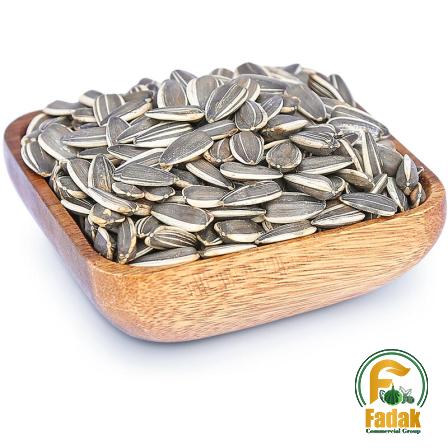 Quality Control and Food Safety Standards Maintaining stringent quality control and adherence to food safety standards is crucial for businesses in the sunflower seeds industry. Canada has established robust regulatory frameworks, including the Canadian Food Inspection Agency (CFIA), to ensure the safety and integrity of food products. Businesses must comply with these regulations, including proper labeling, expiration dates, and allergen information. Regular inspections and audits are conducted to verify compliance with quality control standards. Adopting best practices such as implementing a Hazard Analysis and Critical Control Point (HACCP) system can further enhance food safety and quality control measures. Leveraging Technology and Innovation Incorporating technology and innovation is essential to remain competitive in the sunflower seeds industry. Technological advancements can streamline processes, increase productivity, and improve product quality. For example, automated sorting machines can identify and remove defective or damaged seeds, ensuring only the highest quality seeds are packaged and sold. Innovation can also involve product diversification, such as introducing value-added sunflower seed products like roasted seeds with bespoke flavors or encapsulating sunflower oil. By continually researching and investing in new product development, businesses can differentiate themselves in the market and cater to evolving consumer demands. Sustainability and Environmental Considerations Sustainability and environmental responsibility are increasingly important factors in the business world, including the sunflower seeds industry. Businesses should adopt sustainable farming practices, minimize water usage, and reduce the environmental impact of agricultural activities. Innovations in water management, precision farming, and crop rotation techniques can contribute to sustainable sunflower seeds production. By highlighting their commitment to sustainability, businesses can attract environmentally conscious consumers, create a positive brand image, and contribute to a greener future. Government Support and Funding Opportunities The Canadian government recognizes the importance of agriculture and supports the sunflower seeds industry through various programs and funding opportunities. Agriculture and Agri-Food Canada provides grants, loans, and research funding to support agricultural businesses, including those in the sunflower seeds sector. Businesses can tap into these funding opportunities to invest in research and development, upgrade production facilities, and expand their export capabilities. Collaborating with industry associations and research institutions can also provide access to additional resources and expertise to enhance business operations. Conclusion: The sunflower seeds industry in Canada is thriving, driven by consumer demand for healthy snack alternatives and versatile cooking ingredients. Businesses operating in this industry should focus on optimizing production methods, understanding consumer preferences, and capitalizing on export opportunities. Investing in technology, sustainable practices, and innovation can lead to improved competitiveness and market positioning. Adhering to quality control standards, complying with food safety regulations, and leveraging government support will contribute to long-term success in this growing industry. With the right strategies and a commitment to quality and sustainability, sunflower seeds businesses in Canada can seize the growing market opportunities and establish themselves as key players in the global sunflower seeds industry.
Quality Control and Food Safety Standards Maintaining stringent quality control and adherence to food safety standards is crucial for businesses in the sunflower seeds industry. Canada has established robust regulatory frameworks, including the Canadian Food Inspection Agency (CFIA), to ensure the safety and integrity of food products. Businesses must comply with these regulations, including proper labeling, expiration dates, and allergen information. Regular inspections and audits are conducted to verify compliance with quality control standards. Adopting best practices such as implementing a Hazard Analysis and Critical Control Point (HACCP) system can further enhance food safety and quality control measures. Leveraging Technology and Innovation Incorporating technology and innovation is essential to remain competitive in the sunflower seeds industry. Technological advancements can streamline processes, increase productivity, and improve product quality. For example, automated sorting machines can identify and remove defective or damaged seeds, ensuring only the highest quality seeds are packaged and sold. Innovation can also involve product diversification, such as introducing value-added sunflower seed products like roasted seeds with bespoke flavors or encapsulating sunflower oil. By continually researching and investing in new product development, businesses can differentiate themselves in the market and cater to evolving consumer demands. Sustainability and Environmental Considerations Sustainability and environmental responsibility are increasingly important factors in the business world, including the sunflower seeds industry. Businesses should adopt sustainable farming practices, minimize water usage, and reduce the environmental impact of agricultural activities. Innovations in water management, precision farming, and crop rotation techniques can contribute to sustainable sunflower seeds production. By highlighting their commitment to sustainability, businesses can attract environmentally conscious consumers, create a positive brand image, and contribute to a greener future. Government Support and Funding Opportunities The Canadian government recognizes the importance of agriculture and supports the sunflower seeds industry through various programs and funding opportunities. Agriculture and Agri-Food Canada provides grants, loans, and research funding to support agricultural businesses, including those in the sunflower seeds sector. Businesses can tap into these funding opportunities to invest in research and development, upgrade production facilities, and expand their export capabilities. Collaborating with industry associations and research institutions can also provide access to additional resources and expertise to enhance business operations. Conclusion: The sunflower seeds industry in Canada is thriving, driven by consumer demand for healthy snack alternatives and versatile cooking ingredients. Businesses operating in this industry should focus on optimizing production methods, understanding consumer preferences, and capitalizing on export opportunities. Investing in technology, sustainable practices, and innovation can lead to improved competitiveness and market positioning. Adhering to quality control standards, complying with food safety regulations, and leveraging government support will contribute to long-term success in this growing industry. With the right strategies and a commitment to quality and sustainability, sunflower seeds businesses in Canada can seize the growing market opportunities and establish themselves as key players in the global sunflower seeds industry.
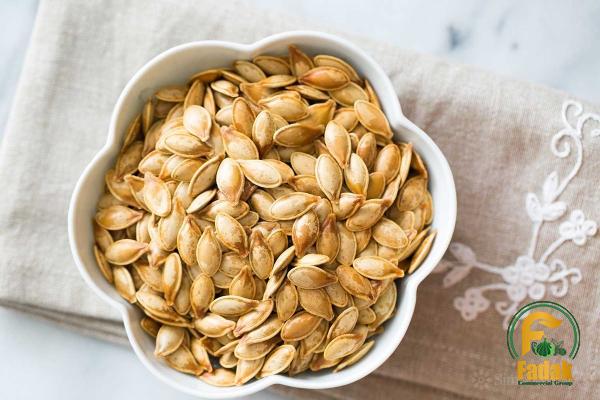
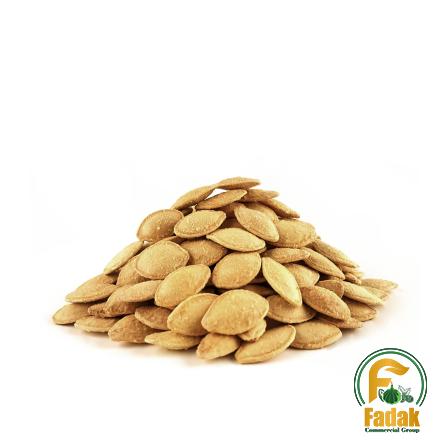
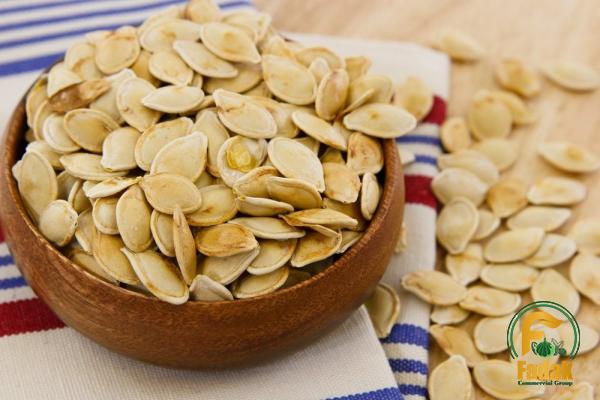
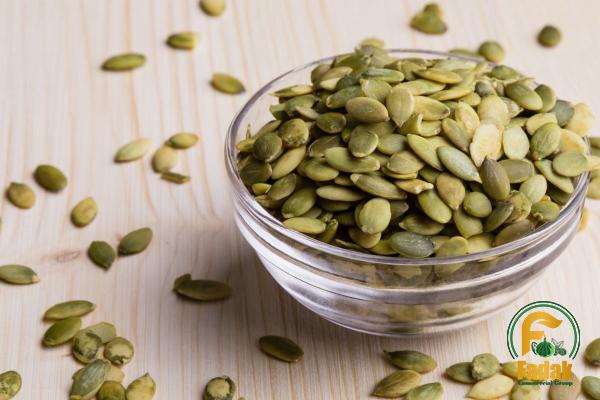
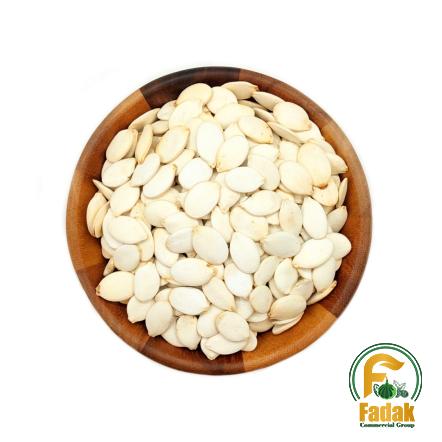
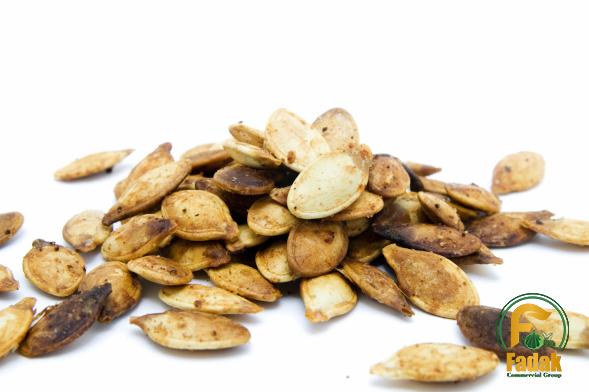
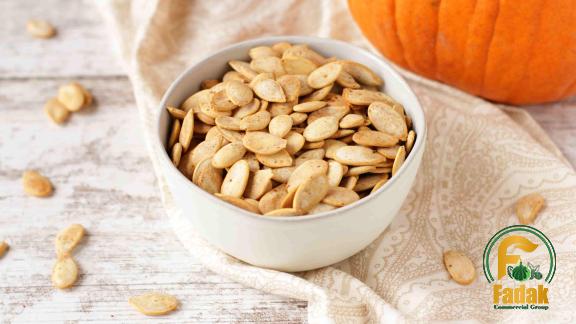
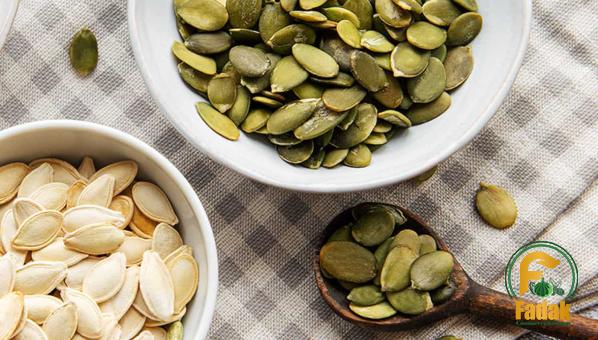
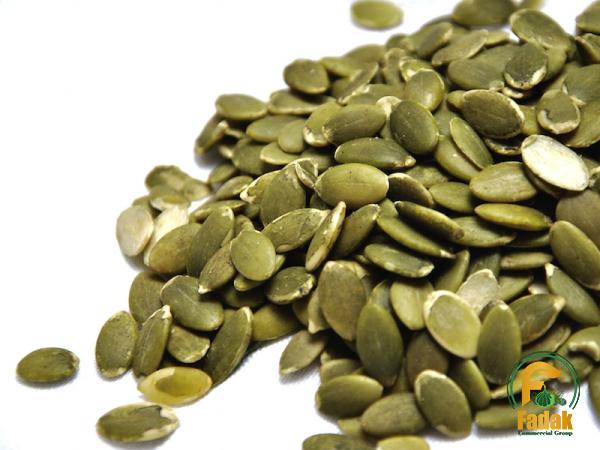

Your comment submitted.